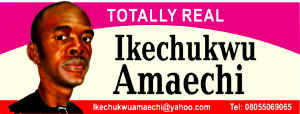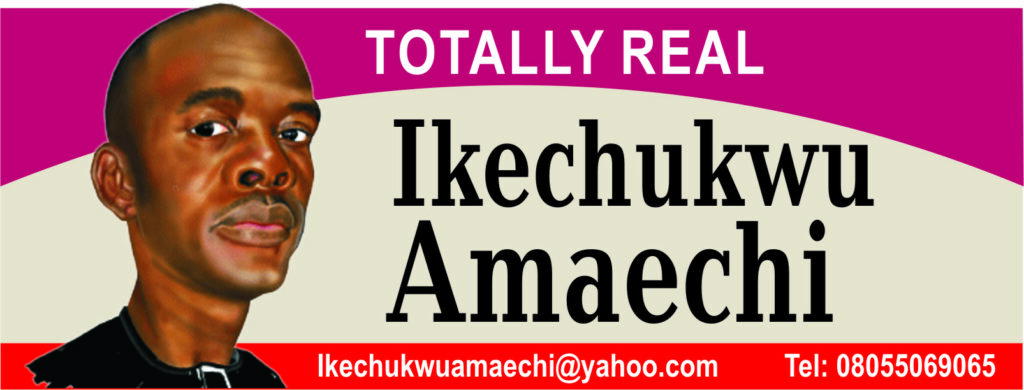

By Ikechukwu Amaechi
NIGERIANS love clichés to bits. But if there is anything they love more than clichés, it is their penchant to determine the fate of Ndigbo based on pre-conceived notions. As the curtain is slowly but inexorably being drawn on the Muhammadu Buhari presidency and the political silly season is, once again, upon us, those two tendencies are manifest.
As 2023 beckons, the buzz phrase these days is the fallacy that power is not served a la carte. Interestingly, that banality is only voiced in reference to the legitimate clamour for a Nigerian President of Igbo extraction.
You often hear people speaking tongue-in-cheek that “power is taken and not given”, ostensibly latching onto Gloria Steinem’s phrase that “nobody gives you power; you have to grab it,” without putting it in context as Steinem, an American feminist journalist and social political activist, did.
For instance, fielding questions on Arise Television on August 4, 2020, elder statesman, Alhaji Tanko Yakasai, former Liaison Officer to former President Shehu Shagari, said: “Igbos should not expect power to be served on them, they should build bridges if they want a president of Southeast extraction.” Yakasai insisted that “power is taken and not given.”
While the nature of power in itself involves contestation, the idea that it must always be taken and not given is not true. In Nigeria, power has always been served a la carte since independence in 1960.
When Shehu Shagari became president on October 1, 1979, he did not take power, it was given to him because his ambition was to become a senator before he was handed the presidential ticket of the National Party of Nigeria, NPN, at the party’s national convention held at the Casino Cinema, Yaba, on December 12, 1978.
Having been adopted by the Northern political establishment, he easily defeated other more flamboyant, wealthier and politically-astute aspirants like Maitama Sule, Adamu Ciroma, Dr. Olusola Saraki, Joseph Tarka and Professor Muhammed Iyi Abubakar in the primaries. He became Nigeria’s first executive president on a platter of group endorsement, and in spite of himself, having been served power a la carte.
Olusegun Obasanjo was in prison when the Peoples Democratic Party, PDP, was founded in August 1998 by former Vice President, Dr. Alex Ekwueme, and other members of the G-34. Yet, in deciding who the party’s presidential candidate would be, Ekwueme, who rallied round the most potent opposition against General Sani Abacha’s transmutation agenda was by-passed for a reluctant Obasanjo. He was served power a la carte.
ALSO READ: Nnamdi Kanu: What political solution could achieve —Igbo Leaders
The late President Umaru Yar’Adua wanted to return to Ahmadu Bello University as a lecturer after his eight-year tour of duty in Katsina State as governor. He neither had the gumption, war-chest nor even the national name recognition to propel him to Aso Rock. Yet, he became president without any struggle. Simply put, he was handed the presidency on a platter of Obasanjo’s whims.
President Muhammadu Buhari, who had run on his own steam three times, only made it to Aso Rock when most Northerners felt that President Goodluck Jonathan’s quest for a second term was not only greed for power taken too far but an unpardonable breach of the rotation principle which favoured the North at the time.
Even members of the PDP from the North, including the then National Chairman, Adamu Mu`azu, worked against Jonathan. In Bauchi State, where Mu’azu was governor for eight years, PDP lost the 2015 presidential election to APC, scoring only 86,085 votes, a paltry 8.4 per cent as against 931,598 polled by APC.
Even during the military era, power was served a la carte to Yakubu Gowon after the bloody July 29, 1966 counter-coup by Northern military officers. He didn’t struggle to become Head of State.
The junior officers who overthrew Gowon in a palace coup d’état on July 29, 1975 handed power over to General Murtala Muhammed. General Joseph Garba, one of the architects of the coup who later became Minister of External Affairs, narrated how Murtala even gave them conditions for accepting the offer.
When Murtala was assassinated on February 13, 1976, reports had it that General Olusegun Obasanjo, his second in command, was reluctant stepping into his shoes. Rather than struggle for power, he was persuaded. So, why will it be different now simply because there is clamour for a Nigerian president of Igbo extraction?
Yakasai talked about Ndigbo building bridges. Isn’t that what they have been doing even before the idea of Nigeria became a reality? There is hardly any Igbo leader of the old generation that was born in the South-East.
Both Dr. Nnamdi Azikiwe and Chukwuemeka Odumegwu Ojukwu were born in Zungeru, a town in Niger State, which was the capital of the British protectorate of Northern Nigeria from 1902 until 1916.
Presently, there is no community in Nigeria’s 774 local governments, no matter how remote, that you won’t find a resident Igbo. So, why is the bar being raised so high simply because Ndigbo are laying a claim to the national political diadem?
Before now, the question has been: where are the Igbo candidates? Now that some Igbo aspirants, including Mazi Sam Ohuabunwa, a renowned pharmacist, founder and former CEO of Neimeth Pharmaceutical, former president of the Pharmaceutical Society of Nigeria, foundation president of the West African Pharmaceutical Manufacturers Association, former Chairman of the Nigerian Economic Summit Group and Manufacturers Association of Nigeria; and Senator Anyim Pius Anyim, a lawyer, who became Senate president at the young age of 39, and also served as Secretary to the Government of the Federation, SGF, have raised their hands to be counted, the story is changing.
Suddenly, zoning of political offices has become a taboo to some political actors. Former Vice President Atiku Abubakar, who obviously wants to run again for the presidency in 2023, is now repudiating the PDP zoning principle.
Speaking at the 94th National Executive Committee, NEC, meeting of the PDP on Thursday, October 7, Atiku urged the party to be guided by the spirit of fairness and equity rather than zoning in determining the presidential candidate.
“Where the President comes from has never been the problem of Nigeria. It will not be the solution to the problems of Nigeria. There is no such thing as a president from Southern Nigeria or a president from Northern Nigeria.
There is only one president, a President of Nigeria, for Nigeria and by Nigerians,” he said. On the face value, there is nothing wrong with his position. But juxtapose it with his stance on the same issue at the 2011 PDP Convention when he squared against Jonathan, the hypocrisy jumps out.
Hear him then: “The founders of this party, in their wisdom, devised rules for the rotation of power between North and South in response to cries of marginalisation and domination. We wanted peace and justice to reign. And we put it in our Constitution (Section 7.2.c), and we all know what a Constitution means.
“That provision has not been altered. In 2002, an expanded caucus of our great party met and reaffirmed that policy…. I have always put Nigeria first before my personal interests and ambitions.”
So, what has changed? If rotation of power between North and South was desirable in 2011, what makes it undesirable in 2023? Truth be told, equity, fairness and social justice demands a Nigerian president of South-East extraction in 2023.
In which case, after eight years of a Muhammadu Buhari presidency, power should gravitate to the South. And it will be unconscionable for the South-West that has held the presidency and vice presidency for 16 solid years in a period of 24 years or the South-South that was there for five years to deny Ndigbo the opportunity.
But even if the only criterion for determining who becomes president in 2023 is competence, South-East has a glut of competent people. Fortunately, all those who have declared interest so far are not running because they are Igbo, but because they are competent, knowledgeable and proficient Nigerians, who possess the requisite skill sets to save their beloved country from implosion.
The post Ndigbo and fallacy of power not served a la carte appeared first on Vanguard News.
0 Commentaires